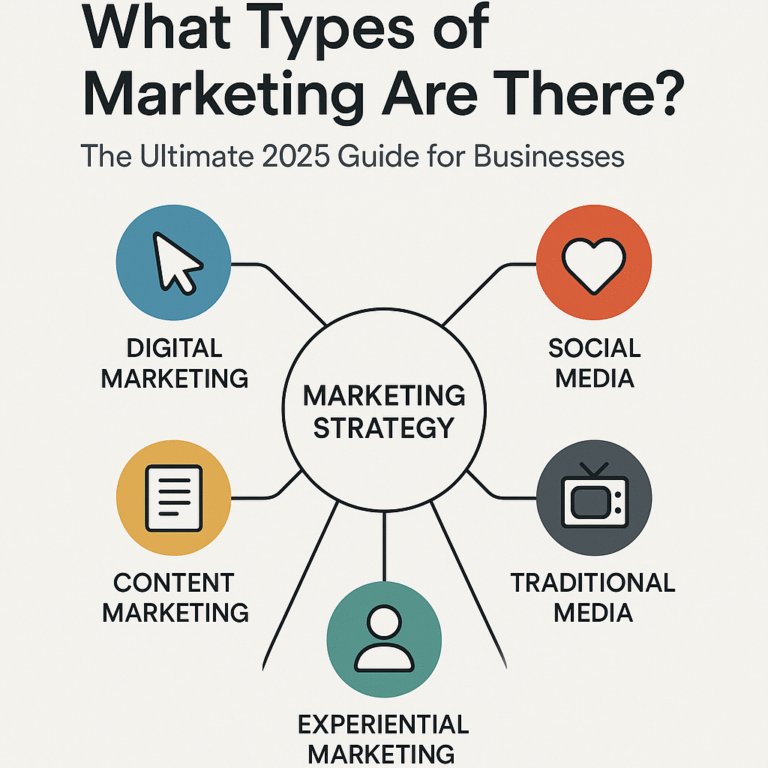Describe a Niche Market: An All-Inclusive Handbook for Clarifying Niche Marketing
Though the term “niche market” is frequently used in the worlds of business and marketing, many individuals still find it difficult to define. Simply put, a niche market is a narrow, well-defined area of the market intended to satisfy the needs of a particular group of consumers, focusing on a specific product or service. Unlike mass-oriented broad markets, niche markets are distinguished by expertise and a thorough understanding of the particular tastes and needs of a smaller clientele.
This extensive guide will cover what a niche market is, how to find one, the advantages of focusing on one, and how companies can successfully serve these specialized markets. Understanding niche markets will help your company gain a competitive edge and achieve better market positioning, regardless of your level of experience.
What Is a Niche Market?
A niche market is a targeted, focused section of a larger market where companies can concentrate their efforts to satisfy the particular demands and tastes of a specific group of customers. Usually defined by specific products or services tailored to a well-defined clientele, a niche is effectively a subset of a bigger business.
Niche marketing is about filling a specific demand that more general, mainstream competitors often overlook. The goal is to create a market niche that allows a company to stand out from the competition, inspire loyalty, and establish a strong brand presence.
Examples of niche markets include:
- Pet Products for Exotic Animals: A company could focus on distinctive items for pet reptiles, birds, or exotic mammals rather than offering products for all types of pets.
- Vegan Beauty Products: A beauty brand could focus exclusively on plant-based, cruelty-free products for consumers who lead ethical and vegan lifestyles.
- High-End Custom Bicycles: These are designed and sold for competitive cyclists or cycling enthusiasts and are tailored to individual preferences.
By targeting a niche market, companies can become experts in specific fields where they can shine, offering highly relevant and useful solutions to their target consumers.
Key Features of a Niche Market
Before exploring the advantages and strategies of niche marketing, it’s important to understand the key characteristics that define a niche market:
- A Subset of Consumers with Shared Interests or Needs: Niche markets consist of consumers who share specific interests, demands, or behaviors, and are often underserved or overlooked by mainstream businesses.
- Specialized Products or Services: Businesses serving niche markets offer goods or services specifically designed to meet the needs of a particular group. These products are often specialized or modified to suit the target customer.
- Less Competition: Niche markets often face less competition than broader markets because they meet specific needs. This gives companies the opportunity to establish themselves as leaders in their field.
- Stronger Consumer Loyalty: Serving a niche market allows businesses to build stronger consumer loyalty by providing highly tailored products or services that appeal directly to the target audience.
- Unique Selling Proposition (USP): Niche businesses usually have a distinct USP that sets them apart from competitors in the broader market. This could be based on better quality, exclusivity, or unique features that attract their target audience.
Advantages of Targeting a Niche Market
Focusing on a niche market offers several benefits that businesses can leverage. Here are some key advantages:
- Reduced Competition: Focusing on a specialized market means less competition from larger, more general businesses. Companies in niche markets can position themselves as leaders or experts, helping to establish brand authority and trust.
- Cost-Effective Marketing: Niche markets are smaller, so businesses can often generate better results with a smaller marketing budget. Marketing efforts can be more focused, producing more cost-effective campaigns. Additionally, businesses can use highly targeted marketing techniques, such as social media ads or influencer partnerships, to reach their audience at a lower cost.
- Stronger Consumer Loyalty: A company that focuses on a niche market can offer products and services that deeply resonate with its target customers. This leads to stronger consumer loyalty and long-term relationships, as customers appreciate the personalized attention and value they receive.
- Higher Profit Margins: Niche products and services are often perceived as more valuable by the target market, allowing companies to charge higher prices and achieve better profit margins. Additionally, niche businesses are less likely to be driven by price competition, as consumers are willing to pay a premium for customized products.
- Opportunities for Innovation: Niche markets offer businesses the chance to innovate, as they can test new ideas, products, or services that directly address the unique needs of their customers. Focusing on a niche market allows companies to be creative and tailor solutions that may not be feasible in a larger, more generalized market.
How to Find a Niche Market
Any business wishing to target a specific audience and specialize must first find a viable niche market. Here are some techniques to help identify a niche market:
- Analyze Your Interests and Passions: Many successful niche markets stem from the personal passions or knowledge of the business owner. Reflecting on your own interests, hobbies, and experiences can help you identify an underserved niche that you could target. Companies founded on the creator’s passion often exude authenticity and real value, which resonates with like-minded consumers.
- Identify Gaps in Existing Markets: Finding unexplored niches is easier when you observe gaps in the market. Look for areas where established businesses may be falling short or consumer needs are not fully met. If you can fill these gaps with a unique product or service, you’ll have a strong niche offering.
- Conduct Surveys and Market Research: Surveys, polls, and interviews with potential customers will give you insights into their specific needs, preferences, and challenges. Market research is essential for identifying niche markets, as it helps gather valuable information about consumer demands and how to meet them effectively.
- Look for Emerging Trends: New trends in culture, technology, or lifestyle can highlight potential niche markets. Keeping up with trends allows you to spot opportunities before they become widely recognized. Whether it’s a new dietary trend, entertainment genre, or technological development, being ahead of the curve can position your business as a leader in a particular market.
Strategic Niche Marketing
Once you’ve identified your niche market, you need a solid strategy to reach and engage your target audience. Here are some effective strategies for niche marketing:
- Create Tailored Content: One of the best ways to establish authority and build relationships is by producing content specifically for your niche audience. Blog posts, videos, podcasts, and social media updates that address the unique interests and concerns of your target market can help build trust and loyalty.
- Leverage Social Media Communities: Reaching niche audiences is easier on social media, especially if you use targeted ads and join groups or communities relevant to your niche. Participate in discussions, share valuable content, and engage with your audience to build rapport.
- Use Influencer Marketing: Influencer marketing can be a powerful tool to extend your reach within a niche market. Partner with influencers who have a significant following in your niche, as they can help establish credibility and trust with potential customers through sponsored content, reviews, or giveaways.
- Provide Exceptional Customer Service: Customer service is a major differentiator in niche markets. Personalized and responsive service helps build loyalty and encourages repeat business. Engaging with your customers on a deeper level creates lasting relationships that can lead to word-of-mouth referrals.
Successful Niche Market Examples
Let’s look at some examples of companies that have successfully tapped into niche markets:
- Blue Apron: A meal kit delivery company targeting busy families and professionals who want to eat well but lack the time for grocery shopping.
- GoPro: The brand created a niche among adventure sports enthusiasts who needed a durable, portable camera to document their activities. By focusing on this segment, GoPro established a loyal fanbase and differentiated itself from other general camera companies.
- Tesla: Tesla created a niche in the electric vehicle market, targeting environmentally conscious consumers who are passionate about sustainability and innovation.
Challenges of Niche Marketing
Despite its many benefits, niche marketing does come with challenges. Some of the main obstacles include:
- Limited Market Size: Niche markets target a specific group of consumers, so businesses may find it difficult to scale. Over time, the market may become saturated, requiring companies to innovate or expand into other segments.
- Dependence on a Small Customer Base: Niche businesses are highly dependent on a small set of customers. Changes in consumer preferences or market conditions can have a significant impact on their success.
- Higher Risk: If demand for a niche product or service declines, the business may face higher risks due to its specialized nature. However, businesses can mitigate this risk by staying close to their customers and continuously adapting to their needs.
In Summary
Niche markets present great opportunities for businesses seeking to target specific customer segments and specialize. By focusing on the particular needs of a smaller group of consumers, businesses can reduce competition, foster loyalty, and increase profitability. Identifying a profitable niche, developing tailored marketing strategies, and delivering customized solutions will help your business stand out and thrive in today’s competitive landscape.
If you want to enter niche marketing, the key is to stay focused, deeply understand your target group, and consistently deliver value that meets their specific needs. This approach will help you differentiate yourself from competitors and establish a strong, sustainable presence in your chosen market.




